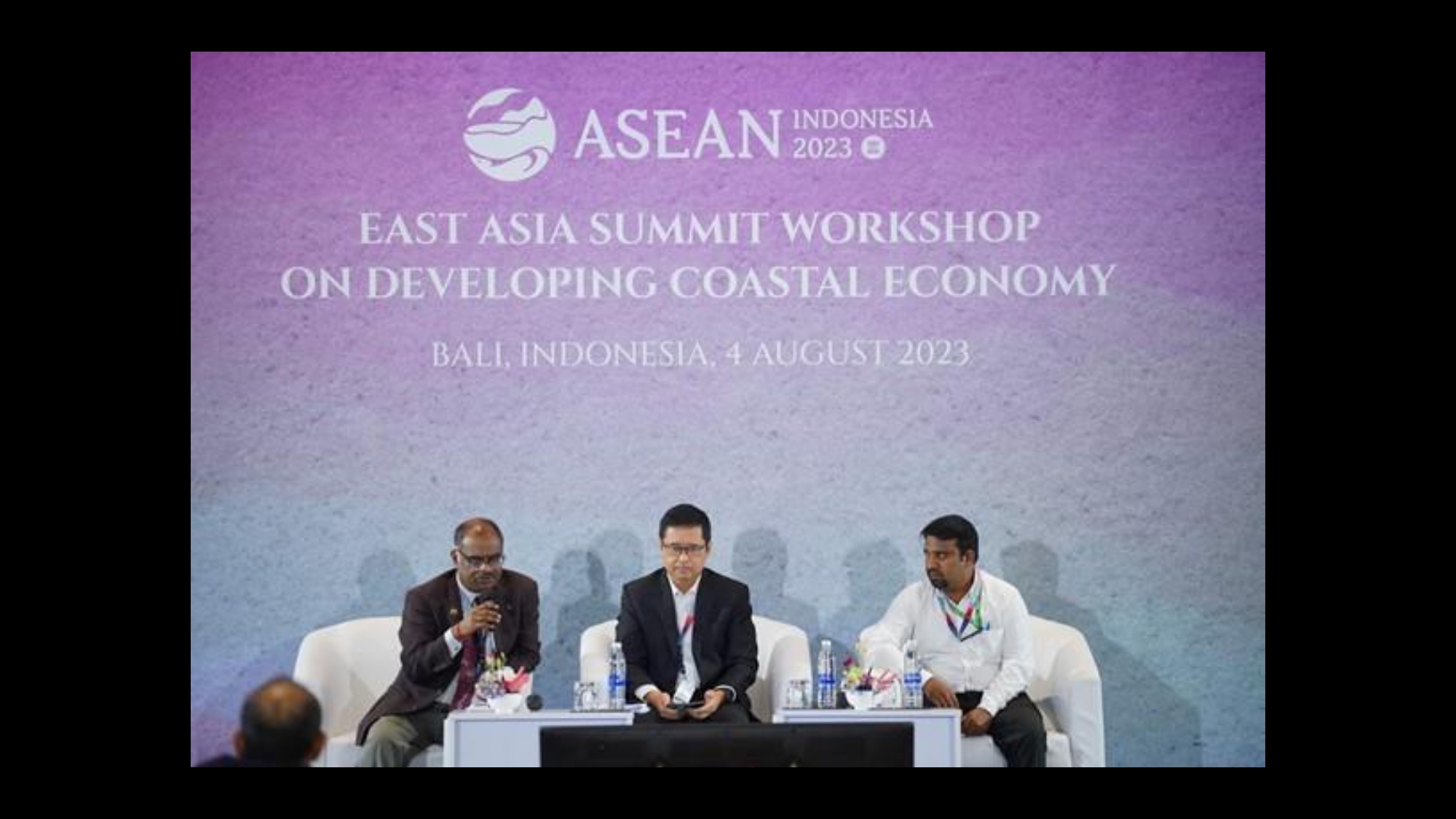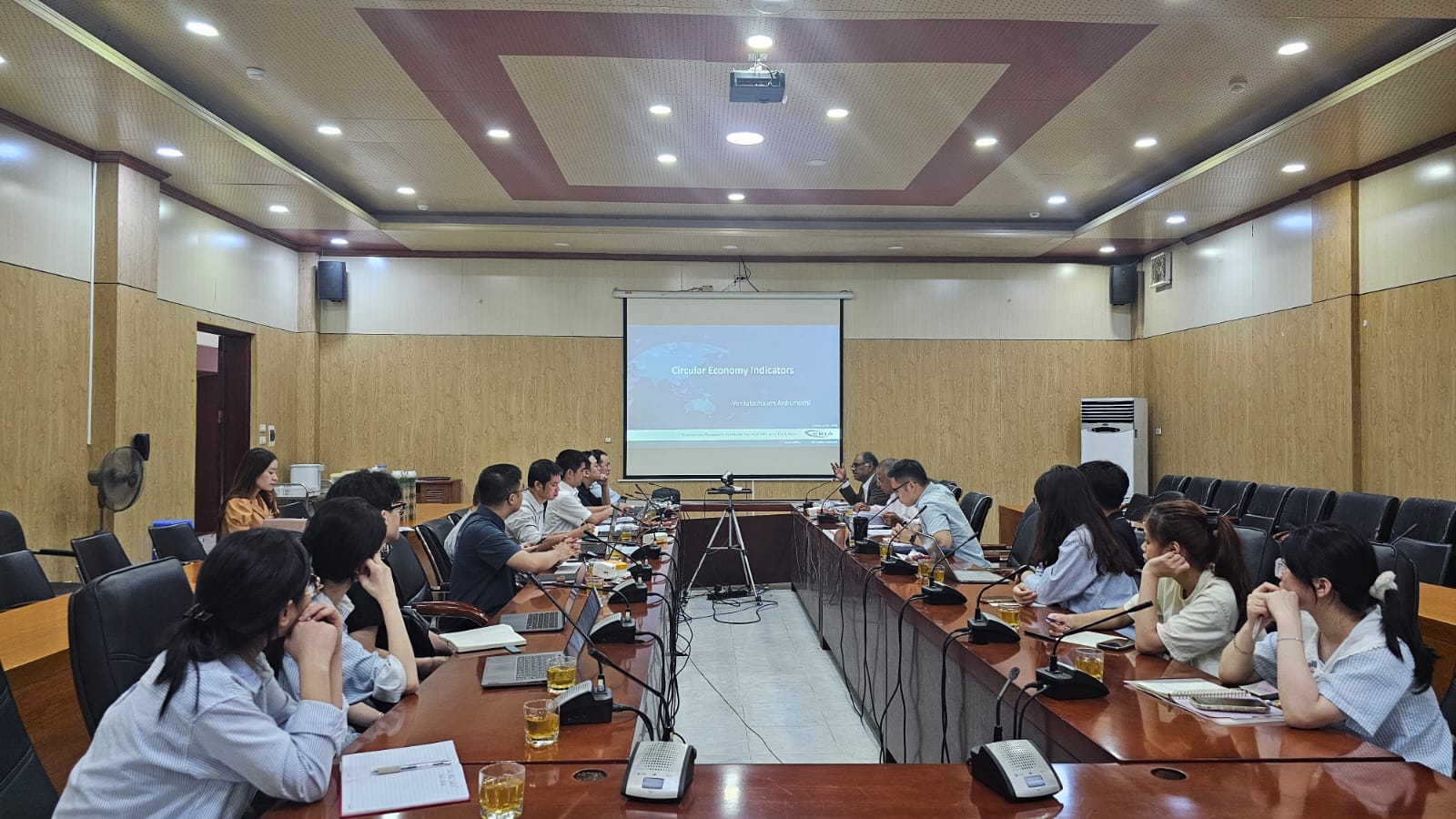ERIA Contributes to East Asia Summit Workshop on Coastal Economy Development
Date:
4 August 2023Category:
NewsTopics:
ASEAN Chairmanship, East Asia Summit, IndonesiaShare Article:
Print Article:
Bali, 4-5 August 2023: As a part of its 2023 ASEAN chairmanship, Indonesia's Ministry of Foreign Affairs organised the East Asia Summit (EAS) Workshop on Developing Coastal Economy in Bali on 4-5 August, 2023. Four high-level panel sessions discussed key drivers of the coastal economy and how they can be harnessed for sustainable development, including contributions from the Economic Research Institute for ASEAN and East Asia (ERIA).
In the welcoming remarks, Senior Officials Meeting (SOM) Leader ASEAN-Indonesia/EAS SOM Chair Sidharto R Suryodipuro underscored the importance of the transformation toward a sustainable coastal economy where environmental protection and conservation, and economic production and prosperity, go hand in hand.
In his keynote address, Mego Pinandito, Deputy for Development Policy at Indonesia's National Research and Innovation Agency (BRIN), said the use of marine resources should not sacrifice the necessary quality and quantity needed for future generations, and any use of marine resources whose impact is unknown must be carried out with caution, along with the support of reliable scientific evidence.
The sustainable ocean economy is a global paradigm on ocean governance for economic development with the principles of effective protection, sustainable production, and equitable prosperity, where benefits from the ocean and coastal areas are distributed equitably. This paradigm is a solution to achieving ecosystem protection, ocean economic development and the welfare of coastal-dependent communities and small scale fishers.
The four high level panels discussed focused strategies on the implementation of a sustainable ocean economy: understanding the potential of the coastal economy, adapting coastal communities and livelihoods in strengthening the coastal economy, and enhancing infrastructure for sustainable coastal development and climate resilience for the sustainable coastal economy.
Dr Venkatachalam Anbumozhi, ERIA Director of Research Strategy and Innovation, joined the panel on climate-resilient infrastructure, and made a presentation on the critical aspects of ensuring long-term strategies to upgrade infrastructure to avoid climate risks, which could also maximize the resilience of coastal regions in the EAS region. The panels discussed best country practices and common strategies.
Five key strategic steps to accelerate the implementation of a sustainable ocean economy were determined.
First, to mainstream the principles of a sustainable ocean economy based on the effective protection of marine ecosystems, sustainable production and use of ocean resources, and equitable distribution of ocean benefits for the welfare of people, both in national and local ocean and fisheries policies. Second, to improve data baseline quality; strengthen data integration; and conduct more scientific studies to identify the status of ocean health, wealth, equity, knowledge, and finance, along with their various opportunities and challenges.
Third, intensify engagement among policymakers, expert groups, and civil society to develop science and evidence-based policies to implement the blue economy framework. Four, establish a sustainable coastal plan to advance blue economy policy. Five, continuously improve good governance, where the transition toward a sustainable ocean economy is not restrained by weak governance, weak rule of law or lack of access to civil liberties, as the basis of genuine citizen involvement in the policy-making process and strong law enforcement.
Faizal Chery Sidharta, Ministry of Foreign Affairs Director of ASEAN External Cooperation, wrapped up the high-level panel discussion, emphasizing a variety of innovations and international cooperation frameworks and policy instruments needed to support a more sustainable coastal economy.
On the second day of the workshop, SOM delegates and other workshop participants visited a mangrove forest conservation project site in Tahura Ngurah Rai, Bali, learning the role of mangroves in protecting coastal areas against climate risks and also acting as carbon sinks. A carbon sink is anything, natural or otherwise, which accumulates and stores carbon- for an indefinite period and so removes carbon dioxide from the atmosphere.

.jpg)







